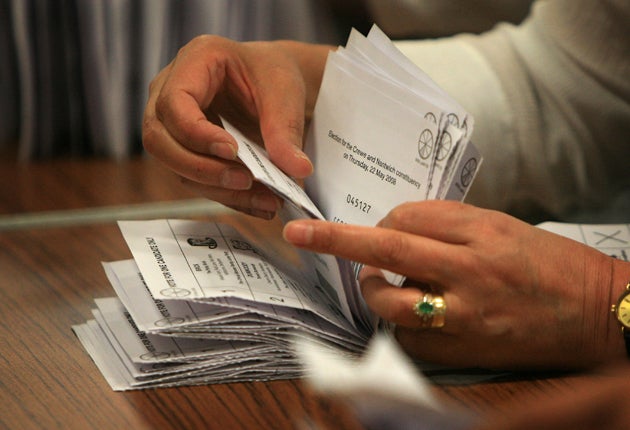How to turn election night into a money-maker

Amid coverage of televised leaders' debates and party political posters, people often don't realise that elections have another side: an opportunity to earn money. Elections are labour intensive, requiring thousands of poll clerks, all of whom can earn a tidy sum on election night.
There are only a few basic requirements; you must be over 18, literate and on the electoral roll. Members of a political party participating in the election are excluded. Applying for the job is straightforward: contact the Elections and Registration Office of your local authority and let them know you're available.
"Many local authorities have online application forms so have a look at your council's website too," says Jasmine Birtles, founder of financial advice site Moneymagpie.com.
Getting in early is the key to a successful application, although some local authorities recruit all year round. If you miss it this year, you may be put on a waiting list for the next election.
Successful applicants must attend training sessions and be sworn in the day before the election. On the day itself, poll clerks are supervised by a presiding officer who oversees the whole station. As a poll clerk, you will be expected to help to set up the booths, check the electors are eligible to vote, check and mark electoral numbers, stamp and issue ballot papers and, above all, ensure votes are cast in secret.
"The team is made up of local residents and council workers who can meet tight deadlines, have excellent organisational skills and communicate well with others," says Steve Miller, head of electoral services at Hammersmith and Fulham Council.
Poll clerk fees vary from one council to another, but you can expect at least £100 for the day. The more generous authorities will pay more than £250, such as the London Borough of Hammersmith & Fulham (LBHF), which pays poll clerks £277.10 for the day. This may sound pretty good for a day, but don't expect an easy ride.
"It's a long day. The polling starts at 7am so you will have to be there before that time and it goes on until 10pm," says Ms Birtles.
Other electoral jobs include counting staff, who earn around £100-200 for a six-hour shift, and postal vote clerks, who ensure that returned postal votes and opened, checked and counted appropriately. Again, no qualifications or experience is necessary and payment and timings vary; at LBHF issuing of postal votes takes place on 23 April and fees are at least £30 for a two-hour session. Others have an hourly rate, such as Middlesbrough Council which pays postal vote openers £10 per hour.
Once you've been a poll clerk, there's a good chance you can take up the role again. Then with a few years' experience under your belt you can apply to become a presiding officer, for more responsibility and more money.
Join our commenting forum
Join thought-provoking conversations, follow other Independent readers and see their replies
Comments